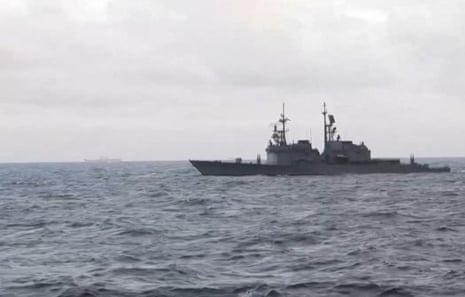
The People’s Liberation Army (PLA) of China has launched large-scale joint military exercises involving navy, air, ground, and rocket forces around Taiwan, as announced on Tuesday. According to Shi Yi, spokesperson for the Eastern Theater Command, the drills are a "severe warning and forceful containment" aimed at Taiwan’s moves toward formal independence.
These drills, which include deployment of the Shandong aircraft carrier, are being conducted without prior notice and do not carry a designated operational title.
Taiwan Tracks PLA Movements and Mobilizes Defense
Taiwan’s Ministry of National Defence reported tracking 19 Chinese navy vessels between 6 a.m. Monday and 6 a.m. Tuesday. The aircraft carrier Shandong and its group entered Taiwan’s Air Defense Identification Zone (ADIZ), an area Taiwan monitors for threats despite China refusing to recognize it.
Taiwanese officials have warned that China could use military drills as a cover for a potential sneak attack. Defense Minister Wellington Koo said the PLA’s actions are undermining regional peace and stability. Taiwan has activated a central response group to monitor the situation.
Xi Jinping's Government Reacts to Taiwan's Pro-Independence Stance
The exercises come shortly after Taiwanese President Lai Ching-te introduced a 17-point national security strategy, which includes measures such as stricter immigration rules for Chinese citizens and military trials for espionage.
China’s Taiwan Affairs Office accused Lai of stirring up anti-China sentiment and labeled his policies a threat. It issued a stern warning stating China would “resolutely counter and severely punish” any pro-independence moves.
Propaganda and Psychological Warfare Escalates
In a provocative move, China released videos portraying Lai Ching-te as a parasite poisoning Taiwan. The propaganda, broadcast on state television, visually depicted Lai as a worm being burned over a flame set atop Taiwan.
The Chinese military has also increased its daily deployments of warplanes and vessels near Taiwan, seeking to wear down its military and morale. These missions have evolved from occasional flybys to coordinated operations involving drones, ships, and aircraft squadrons.
Public Response and Geopolitical Implications
Despite the increasing tensions, citizens in Taipei appear more concerned about economic conditions and international politics, particularly surrounding U.S. leadership. Some see China’s frequent shows of force as more symbolic than strategic.
However, with the U.S. legally bound to treat threats to Taiwan seriously, any escalation in the Taiwan Strait could have global security implications.
Read More: World Bank Approves 700 Million Dollars for Pakistan to Boost Economic Stability and Public Services

 Share
Share



